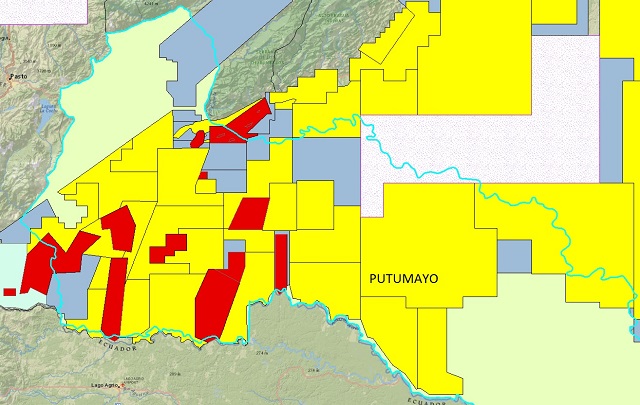The countdown to the September 26th signing and October 2nd, and proposals abound for the public figures behind the “yes” and “no” campaign to meet in a dialogue, or even a public debate.

Looking to end a surge of strikes in Putumayo, the Ministry of Environment (MinAmbiente) said it will lead in creating an “inter-institutional committee” for the department. The ministry said it was to deal with “inadequate hydrocarbons practices,” but its statement talked exclusively about illicit crop eradication.
The formal date for the signing of the peace agreement has been set for September 26th, days ahead of the scheduled October 2 plebiscite. The signing ceremony will take place in Cartagena. Meanwhile the Farc have suspended a conference to discuss the agreement within their ranks.
The Minister of Mines and Energy Germán Arce warned that there is a potential that groups with interests in illicit activities have taken to industry blockades negotiate specific demands, and these should not be confused with traditional anti-oil protests.
The Colombian Chamber of Oil Goods and Services (Campetrol) performed a survey among its members and found that between January and May of 2016 blockades and strikes led to lost daily production of 9,000bd.
A forum took place at the Bogotá-based Pontificia Universidad Javeriana, jointly organized by Crudo Transparente and the Pensar Institute, with the aim of discussing the difficult relationship in Colombia between the population and the oil industry. We attended the kick off meeting and brought back this report.

The above graph accurately reflects the perception that security is less of an issue for the industry than at any time in the past 4 years. However, the ELN are not covered by any current agreements so in some parts of the country the situation is not so tranquil.
The final stretch is underway to close and approve via plebiscite the peace agreement reached between Farc and government negotiators. The date for the signing of the agreement and the critical plebiscite to pass it are now official as well.
Authorities have high hopes for oil companies that have weathered attacks and conflict, which they say now will be able to operate with less security concerns and in areas previously dominated by the armed conflict.
The Ministry of Mines and Energy (ANH) and the National Hydrocarbons Agency (ANH) said that their “Hydrocarbons Territorial Strategy” designed to address community conflicts has been consolidated in 2016 and that the second stage is already underway.